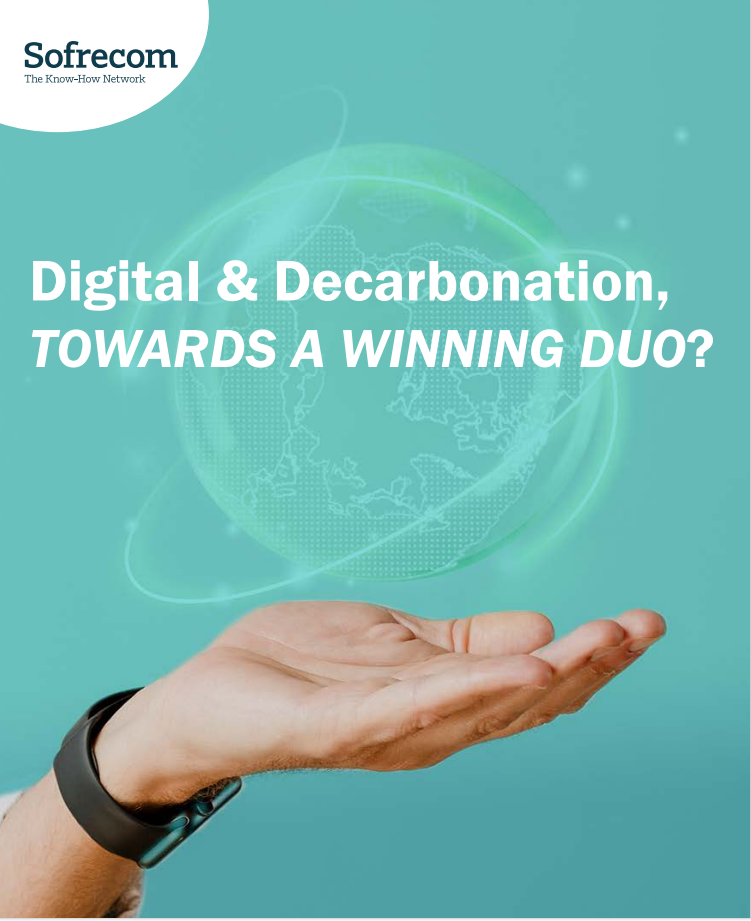
More specifically, data and AI will enable us to analyze and improve the various product lifecycle models, and to robotize industrial reconditioning and recycling lines.

Information and communication technologies (ICT) have revolutionized the lives of all of us. The way we communicate, shop, entertain ourselves, manage administrative procedures and financial services, take care of ourselves, learn and work has undergone an unprecedented transformation, and all this has been accelerated by the COVID crisis. This digital transformation has enabled inclusion and made possible many services previously inaccessible to millions of people, particularly in Africa.
Impact and growth of ICT in Africa
The use of ICTs in Africa, which will continue to increase in the coming years with an average annual growth rate of over 6%, has already imported large volumes of electrical and electronic equipment to build information highways (telecoms and computer networks) and provide access to digital services via various means (computers, mobiles, tablets, etc.).
As Africa's digital transformation continues, it is accumulating waste electrical and electronic equipment (WEEE, D3E or WEEEW), with no effective, controlled local solutions for reducing and processing it. Today, barely 1% of WEEE is processed in Africa, and this waste has a very high carbon footprint, while its processing through existing informal channels exposes those involved to serious health and environmental risks. Consequently, local management of WEEE represents a real economic, environmental and health challenge.
The circular economy makes it possible to sustainably manage product life cycles. On the one hand, it is a lever for pursuing the growth of digital technology, and on the other, it provides the raw materials needed to manufacture new products. Reconditioning products (repair, testing, certification, repackaging), when possible, extends their lifespan and reduces their cost. A reconditioned smartphone can cost 30 to 40% less than a new one. When repair is no longer possible, the product is then recycled (dismantling of components and extraction of raw materials). For example, from a dozen recycled smartphones, it is possible to extract 130g of gold and 700g of silver. 85% of a smartphone can be recycled.
Africa lacks the capacity to recondition and process waste and suffers from a clear technological gap in this area. In fact, only a small proportion of used materials is collected locally, and the majority is exported to processing centers outside Africa. As a result, local operators are deprived of access to quality reconditioned, certified and affordable equipment that meets their needs.
Principles of circular economy and opportunities for Africa
The circular economy is a solution for pursuing the continent's digital transformation in a sustainable way, and it's a winning duo if we know how to provide the conditions for the success of this paradigm shift. It's an opportunity to bring the informal WEEE processing market under control, to create new jobs and to make digital technology accessible to a greater number of people in a sustainable way, while optimizing raw materials, reducing health risks, and protecting the environment.
Several circular economy initiatives are currently underway in Africa:
- The project to create a D3E recycling plant in Cameroon (Project WEEECAM) has put informal sector workers back to work in a legal and secure environment, providing them with a regular income. The plant employs around a hundred people and processes over 2,000 tons of waste a year. It's the first plant of its kind in the whole of Africa, and while it won't be enough to meet the needs of the entire continent, it's a model that can be replicated.
- Cooperation between the Emmaüs association, the telecom operator Orange and Morphosis, a D3E recycling company, enables the collection of end-of-life cell phones in Ivory Coast, Benin, Burkina Faso and Niger. The collected products are transferred to France for recycling.
Innovations in waste management
To move towards an inclusive and sustainable model, Africa needs to step up its efforts to formalize the waste treatment market by regulating the informal sector, define all the regulatory tools needed to promote a green economy, provide training in responsible consumption from an early age, promote innovation and capitalize on successful experiences around the world.
The transformation towards a virtuous and circular model requires substantial funding to develop the waste reconditioning and treatment industry, educate young people, raise public awareness, and provide training to acquire the necessary skills. The UNDP and the most well-known donors are very attentive to these projects and are ready to finance them, as these are priority subjects as defined in the Paris agreements.
And finally, it's clear that the digital and circular economies are allies and need each other. More specifically, data and AI will enable us to analyze and improve the various product lifecycle models, and to robotize industrial reconditioning and recycling lines. The circular economy will optimize resources and reduce costs as the digital transformation continues.





